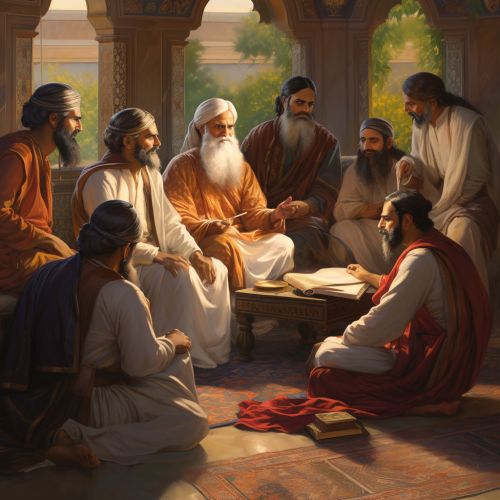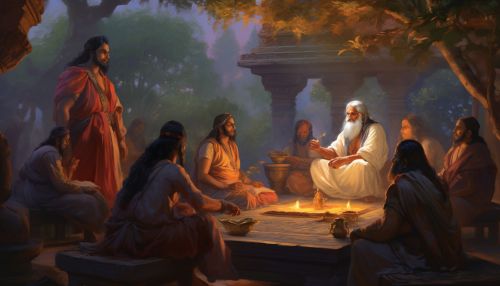Indian literature
Origins and Vedic Period
Indian literature traces its beginnings to the oral tradition of the Vedic hymns that were composed in ancient India around 1500 BCE. The Vedic literature is considered to be the earliest form of literature, which laid the foundation for the classical Sanskrit literature. The Vedas were followed by the Brahmanas, Aranyakas, and Upanishads, which collectively form the Vedantic philosophy.


Classical Sanskrit Literature
The classical period of Sanskrit literature dates to the Gupta Empire, from the 4th to the 8th centuries. The two great epics of this period, the Mahabharata and the Ramayana, have had a profound impact on the culture and history of the Indian subcontinent. This period also saw the creation of various Shastras and Puranas, which contributed to the development of Indian philosophy, law, and mythology.
Medieval Indian Literature
Medieval Indian literature was marked by the influence of Bhakti and Sufism. The literature of this period was written in various regional languages like Tamil, Telugu, Kannada, Malayalam, Oriya, Bengali, Marathi, Punjabi, and Gujarati. Notable works from this period include the Thirukkural in Tamil, Jnaneshwari in Marathi, and Heer Ranjha in Punjabi.
Modern Indian Literature
The modern period of Indian literature began in the 19th century with the influence of the British Raj. This period saw the emergence of new literary genres such as the novel, short story, and drama. The works of Rabindranath Tagore, Premchand, R.K. Narayan, and Mulk Raj Anand are notable in this period. The post-independence period witnessed the rise of post-modern and post-colonial trends in Indian literature.
Indian Literature in English
Indian literature in English began with the works of Henry Louis Vivian Derozio and Michael Madhusudan Dutt during the colonial era. In the contemporary era, Indian English literature has gained international recognition with the works of writers like R.K. Narayan, Raja Rao, Vikram Seth, Salman Rushdie, Arundhati Roy, and Jhumpa Lahiri.
